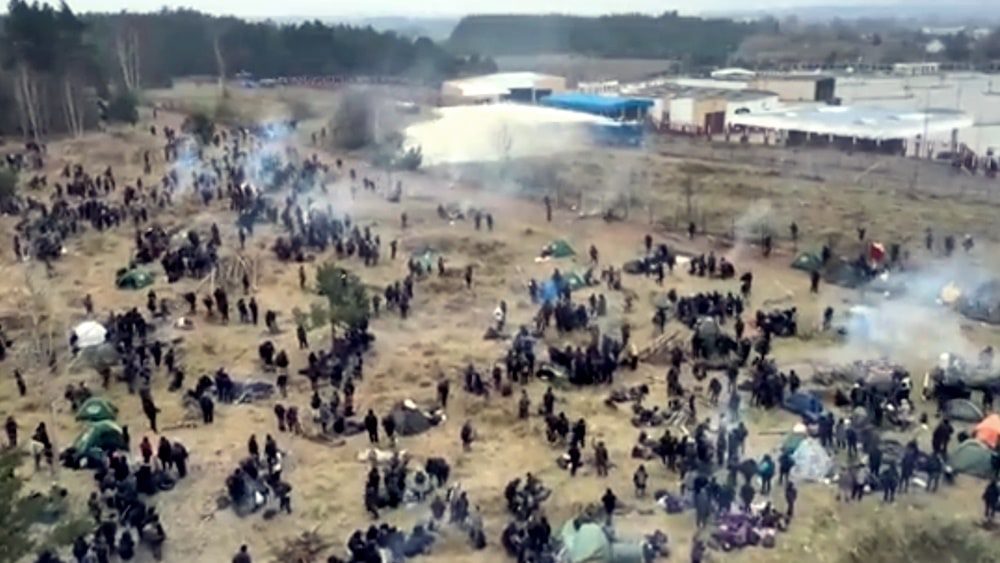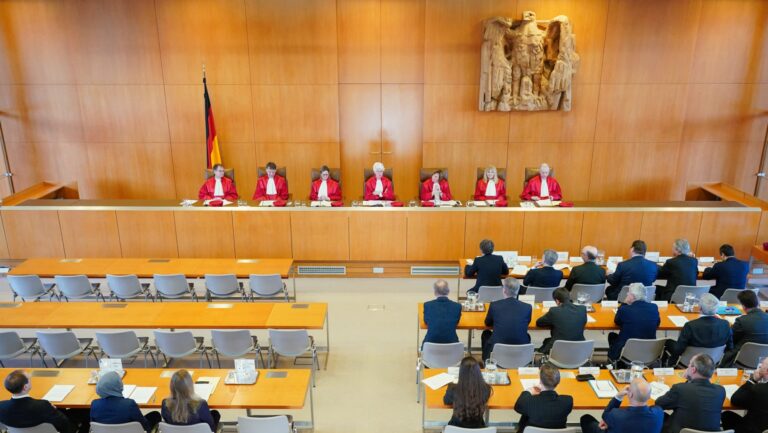Polish security forces apprehended 50 illegal migrants near the village of Starzyna over the weekend after the group managed to break through defense barriers erected along the country’s eastern border with Belarus.
The incident, which according to police saw mainly nationals from Iraq and Syria captured and returned to the border area, took place on Sunday, a day after Poland accused the Belarusian regime of destroying its border barriers, arming migrants with tear gas, and blinding its security personnel with laser beams and strobe lights, Polsat News reports.
Nieopodal ok.100-os.grupa migrantów oczekiwała na możliwość nielegalnego przekroczenia granicy. Białorusini wyposażyli cudzoziemców w gaz łzawiący, który został użyty w kierunku polskich służb. Tej oraz kolejnym próbom nielegalnego przekroczenia gr. 🇵🇱🇧🇾zapobiegliśmy pic.twitter.com/aUq2WLbv0T
— Straż Graniczna (@Straz_Graniczna) November 13, 2021
There were a total of 223 attempts to illegally cross the border on Saturday, alone, Polish border guards say. Groups of migrants attempting to force their way through the barriers hurled stones at police and military personnel, injuring one officer and damaging a police vehicle in the process.
The situation at the Polish-Belarusian border remains incredibly tense. On Tuesday, Polish security forces were forced to deploy tear gas and water cannons to prevent stone-throwing migrants from overrunning barriers near the border crossing at the town of Kuźnica.
“The migrants attacked our soldiers and officers with stones and are trying to destroy the fence and get to Poland. Our services used tear gas to quell the migrants’ aggression,” Poland’s defense ministry tweeted.
🇵🇱 Chaos continues on the Polish Belarusian border
— TLDR News EU (@TLDRNewsEU) November 16, 2021
💥 After migrants threw rocks at Polish forces, officials returned fire with water cannons to migrants them away from the border fence
Find out More About the Crisis: https://t.co/7HWrzbFhnl pic.twitter.com/xZq1XwNETY
Russia, Lukashenko’s main ally in the region, condemned Poland’s use of tear gas and water against the violent migrants, calling it “absolutely unacceptable.”
Polish border, police, and military personnel have been caught in a bitter stand-off along the country’s eastern flank with Belarus for weeks now, after President Aleksander Lukashenko—a quasi-Stalinist dictator—lured thousands of Middle Eastern migrants to the region with visa-free travel. The European Union has accused Lukashenko of using the desperate migrants to wage a hybrid war against the 27-member bloc.
On Monday evening, the European Union slapped the Belarusian regime with a fresh round of sanctions that will target government officials, businesses, and private individuals who helped facilitate the transportation of migrants to the Polish-Belarusian border.





